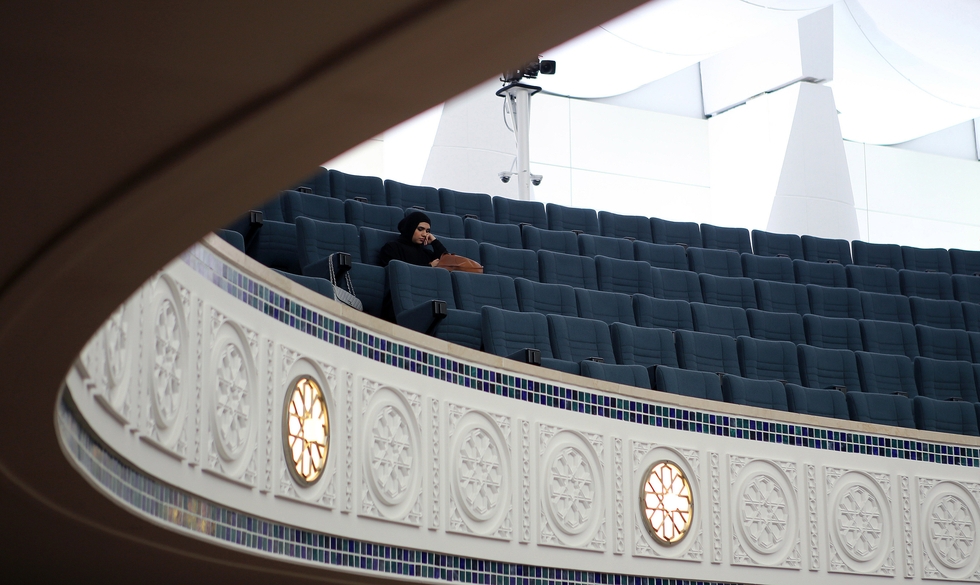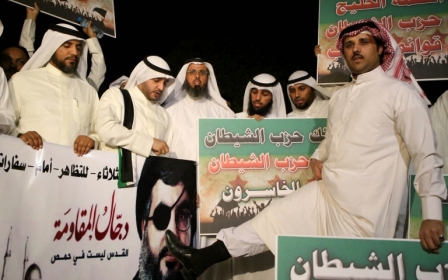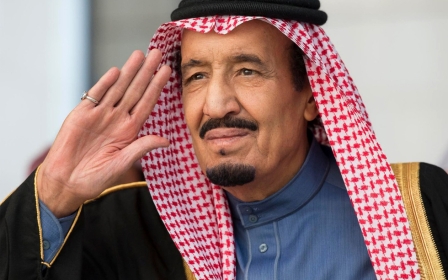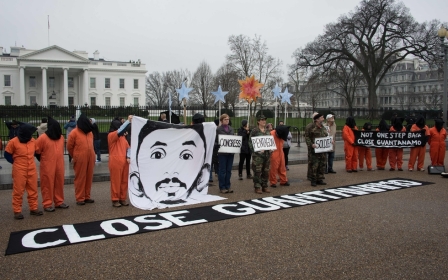Kuwait's Shia MPs boycott parliament session

Kuwait's Shia MPs boycotted parliament on Wednesday, a day after the country's authorities sentenced more than 20 citizens of its minority Shia sect to prison or death for belonging to an Iran-linked cell.
All nine members stayed away from the national assembly, which held a secret debate on the impact of regional conflicts on Kuwait, following attacks on Sunni-ruled ally Saudi Arabia's diplomatic missions in Iran.
One of them, Saleh Ashour, said: "The anger of Kuwaiti Shias has reached its peak in recent days with followers of a complete sect" being accused of acting as "agents for Iran and being members of (Lebanese Shia militia) Hezbollah".
At the same time, authorities are failing to take action against people taking part in fighting in Iraq and Syria, Ashour said on Twitter, a reference to members of Sunni militant groups.
Abdulhameed Dashti, another Shia MP, wrote on Twitter that he was boycotting the 50-seat parliament for the day, although like the others he did not give an explicit reason.
It comes after a lower court on Tuesday found 22 people, all but one of them Kuwaiti Shias, guilty of plotting attacks within the state.
Two defendants, including an Iranian tried in absentia, were sentenced to death while 19 were handed jail terms ranging from five years to life.
Another was fined 5,000 dinars ($16,500) while three were acquitted.
Prosecutors accused the convicted of belonging to a "terrorist cell" that collaborated with Iran's Revolutionary Guards and Hezbollah to carry out hostile acts against the emirate.
The sentenced were also accused of possessing explosives and weapons, in addition to unlicensed eavesdropping devices with the intention to execute crimes.
All of the defendents denied the charges in a closed court session on Tuesday and said that their confessions were extracted under torture.
They told the court they were beaten and given electric shocks, with interrogators threatening to kill them if they did not sign prepared confessions.
Shiites form around 30 percent of Kuwait's native population of 1.3 million.
The oil-rich emirate has witnessed a rise in sectarian tensions due to regional strife.
Kuwait recalled its ambassador from Iran to protest the attacks on the Saudi missions, and summoned Tehran's ambassador to express its disapproval.
The attacks, carried out by protesters angry at Saudi Arabia's execution of prominent Shia cleric Nimr al-Nimr, prompted Riyadh to cut diplomatic ties with Tehran.
New MEE newsletter: Jerusalem Dispatch
Sign up to get the latest insights and analysis on Israel-Palestine, alongside Turkey Unpacked and other MEE newsletters
Middle East Eye delivers independent and unrivalled coverage and analysis of the Middle East, North Africa and beyond. To learn more about republishing this content and the associated fees, please fill out this form. More about MEE can be found here.




